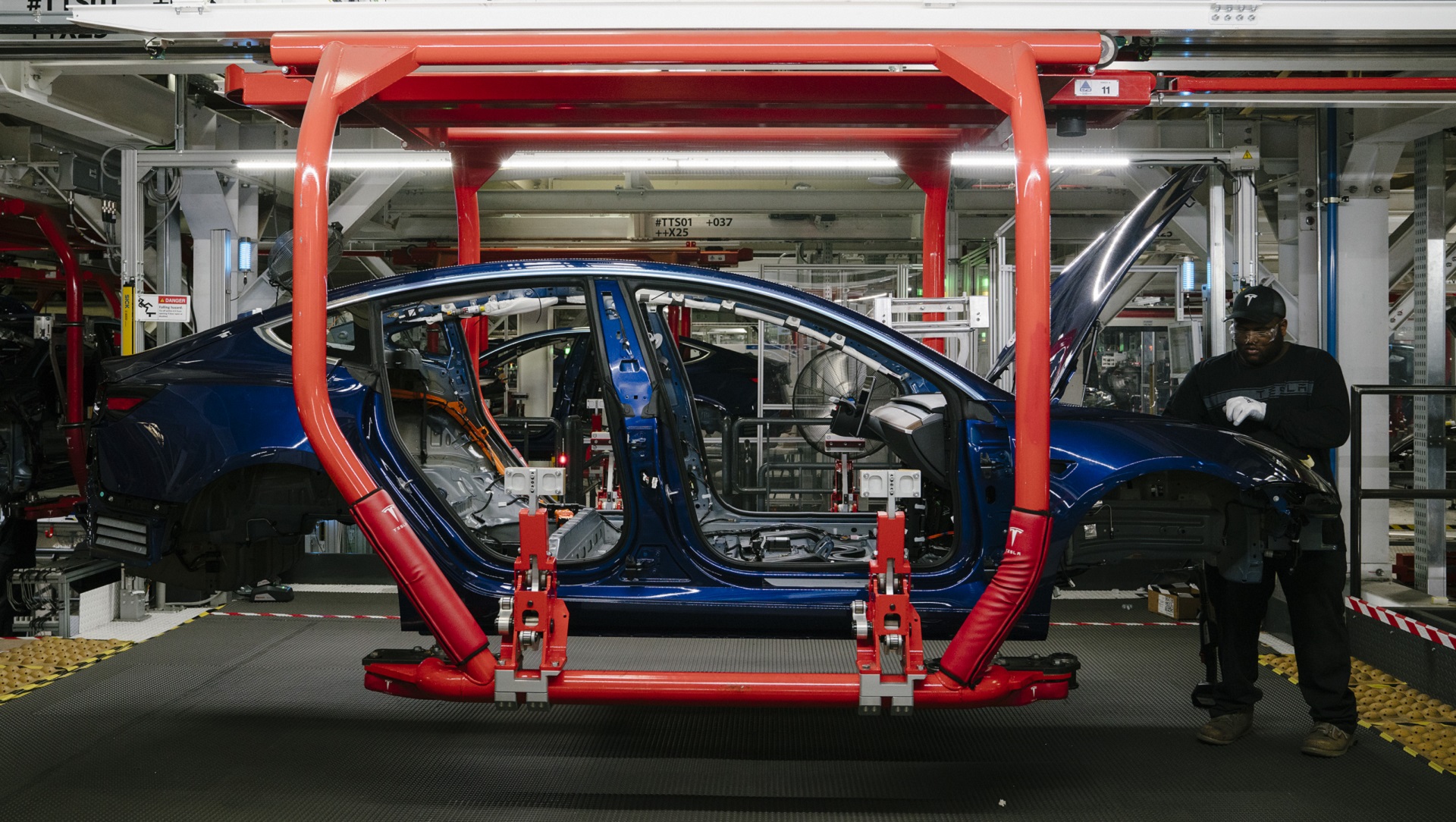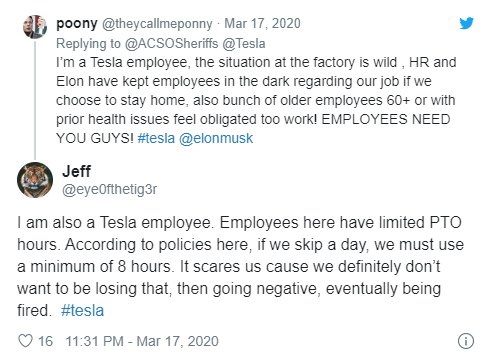

Tesla has announced that it will shut down its factory in Fremont, California beginning at the end of the day on Monday March 23, caving to pressure from county authorities after resisting calls to close the key production facility amid a local shelter-in-place order and the ongoing coronavirus pandemic.
“We have decided to temporarily suspend production at our factory in Fremont, from end of day March 23, which will allow an orderly shutdown,” the company’s statement reads. “Basic operations will continue in order to support our vehicle and energy service operations and charging infrastructure, as directed by the local, state and federal authorities. Our factory in New York will temporarily suspend production as well, except for those parts and supplies necessary for service, infrastructure and critical supply chains. Operations of our others facilities will continue, including Nevada and our service and Supercharging network.”
This marks a notable shift from just four days ago, when confusion reigned over the state of the plant after six Bay Area counties enacted a shelter-in-place order to close all non-essential businesses and keep people at home to prevent the spread of Covid-19. Even those businesses deemed essential—things like grocery stores, gas stations, banks—were supposed to operate with a skeleton staff performing vital functions. Tesla’s Fremont plant initially earned that designation and operated with close to a full 10,000-person staff on Monday, raising eyebrows, drawing questions from reporters, and angering at least a few employees, who shared their frustrations on Twitter:

CEO Elon Musk reportedly sent a mass email on Monday saying “If you feel the slightest bit ill or even uncomfortable, please do not feel obligated to come to work,” though he noted that he’d be reporting for duty. That same day, the Los Angeles Times contacted the Alameda County government to ask why the Tesla plant was deemed essential. The response? “That’s a good question,” the county sheriff’s spokesman said. “We’re in uncharted waters right now.”
The answer finally came on Wednesday, when the Alameda County Sheriff’s office announced that the Fremont assembly plant was not in fact an essential business and could only maintain minimum operations. Buzzfeed reported that Tesla compromised with the county to cut its workforce down to 2,500 and let employees “borrow” up to two more weeks of paid sick leave if they need it, but it still wasn’t clear whether the company would be allowed to continue building cars. The sheriff’s spokesman later clarified that it would not, even as CNBC reported that the company was still claiming production employees were required to show up.
Finally, Tesla relented on Thursday, though it will continue to operate other facilities including its Gigafactory in Nevada, the service center network, and Supercharging ops and maintenance. It’s also implementing what it’s calling “touchless deliveries” of its new cars to help safeguard buyers; you can read more about that here. There’s a chance the plant could be pressed into service to manufacture ventilators in a shortage caused by the pandemic, though there’s zero confirmation that any such plan is actually in the works or even being discussed with government officials.
Tesla’s reluctance to close the Fremont plant as automakers around the world shutter their production facilities and heed the demands of authorities and health officials is notable for a few reasons. One is that it did so in China with its new Shanghai factory as the outbreak grew there in February. The resistance here comes in part from the fact that it was in the midst of ramping up its Model Y crossover production, and an extended shutdown will undoubtedly wreak havoc on Tesla’s already tenuous bottom line at a key time.
But also, CEO Elon Musk has taken to Twitter to cast doubt on the dangers posed by the coronavirus—he notably called the panic “dumb” on March 6—predicting zero new cases in the US by the end of April and saying things like “kids are immune.” On Thursday afternoon, he re-shared a graphic with data from Italy dated to March 15th that he claimed showed the curve leveling out at 22,000 cases and just over 1,600 deaths recorded.
At the time of publication, Italy was reporting over 41,000 cases and 3,405 deaths, according to data from Johns Hopkins University.
Got a tip? Send us a note: tips@thedrive.com